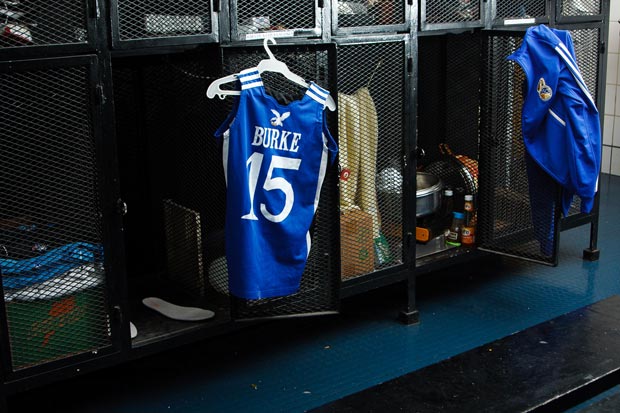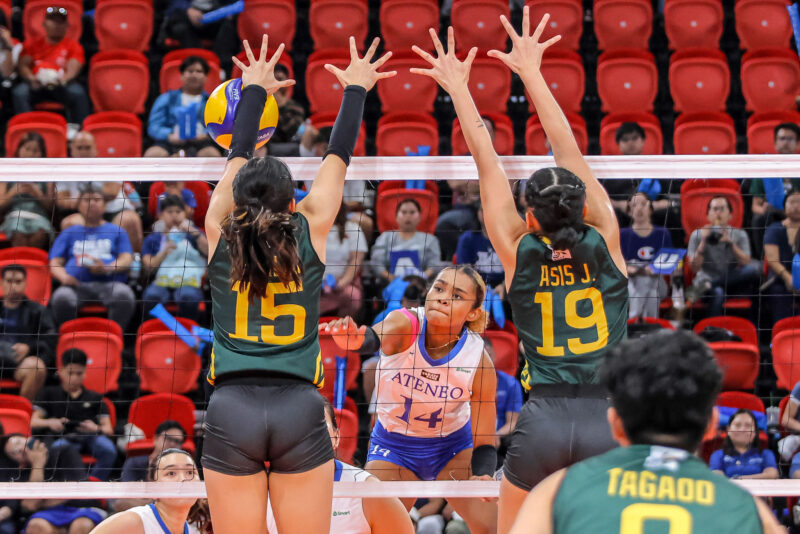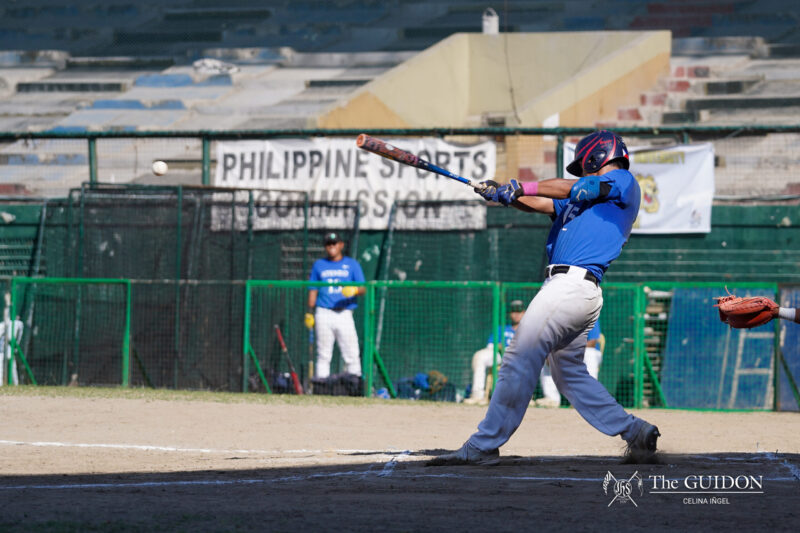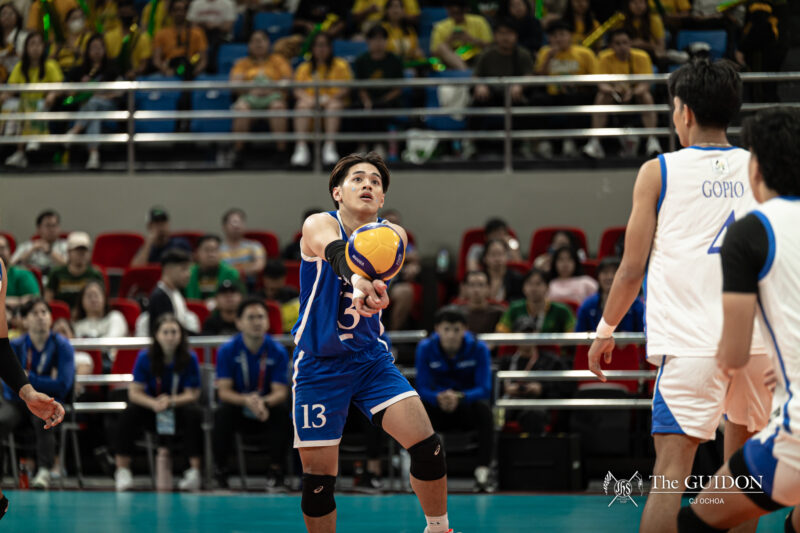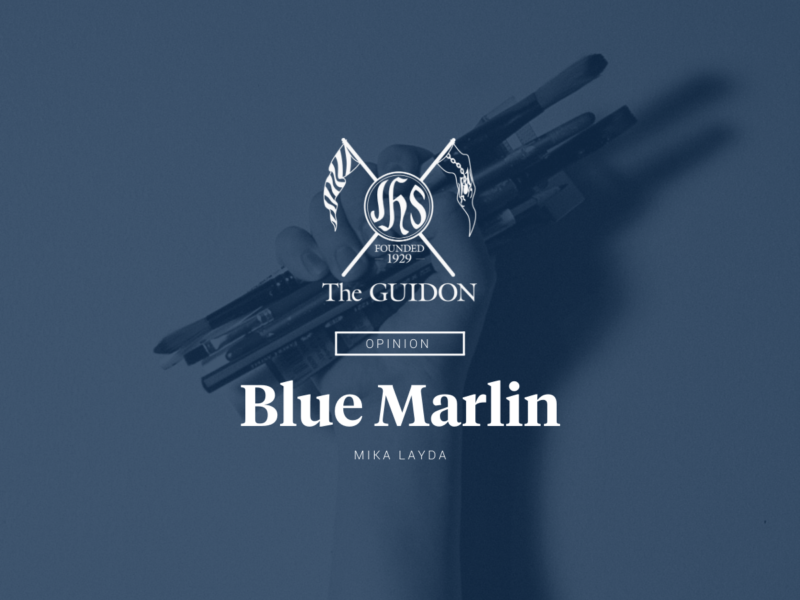“My problem with last season was that the team was hounded with a lot of issues that made it hard to focus on what was most important—football itself,” says Francis Mendoza, a former Ateneo Blue Booter. “In the end, all I wanted to do was play football.”
Mendoza is just one instance of an athlete quitting his team. Even after three years of dedication, there does reach a point where one feels he has to hang his jersey up for good.
When you carry the name of a high-profile team, you try not to be crushed under the weight of all the inevitable pressures. It’s like being involved in a romantic relationship; only, instead of being in love with just one person, you’re in love with the game—the triumphs brought by hard victory, the pains of a devastating loss and the opportunity to create lasting memories.
The reality, however, is that being a student-athlete is not for everyone. Apart from the usual academic workload, student-athletes devote hours training rigorously, sometimes until the wee hours of the morning or late at night after class. It entails hard work and full commitment that leaves no room for reservations. Then, from time to time, when it all gets too much, the question of whether it is all worth it begins to creep up.
It’s hard to walk away from something you’re fond of. It’s harder still if that something has been such a significant part of your life. But for a number of athletes, calling it quits isn’t necessarily the result of a change of heart—factors such as incompatibility with the system, the coaching, and feeling unrecognized can really lead to such a life-altering decision.
Conflict of interest
The many athletes who have decided to give up their spot on the roster feel that they owe their academics quality output. “I decided to quit the team because I noticed I haven’t been focusing so much,” says Belle Rodolfo of the Blue Babble Battalion.
Moreover, the demanding schedule had begun to take its toll. She continues, “University cheerleading is totally different from high school cheerleading, especially here, where we focus on the UAAP and school spirit and such.”
Occasionally clashing with a coach’s system is not at all commonplace, and such cases have transpired for some teams. “Yes, [I had] conflicting beliefs with my coach,” Trackster Franco Imperial admits.
However, even after an athlete withdraws commitment, there exists a mutual respect between player and mentor. “I’m sure that our coach, as all coaches would, would like us to reach our full potential,” Rodolfo explains.
“It was simple. If I didn’t want to play for a coach, then I shouldn’t have joined in the first place,” Mendoza points out. “That was how I was brought up as an athlete.”
Competing as a team generally involves several heads working together to reach a common goal. But with several heads also come several opinions, many of which are conflicting. No team is perfect, and interior and exterior issues are bound to get in the way of performing at their best. The University Athletics Office tries their best to keep athletes contented, but there are cases where issues between player and coach reach a level of irreconcilability.
Irreconcilable differences
Situations where an athlete or an entire team decides to file a complaint against their coaching staff are brought to the attention of the University Athletics Office (UAO).
“It’s a closed meeting and coaches will never ever know who [the complainants] are,” discloses Nina Samaco, Assistant to the Director for Marketing of the UAO. “We talk about what their issues are with their coaches. We’ll see if their reasons are objective enough.”
Quality of coaching is ultimately the responsibility of the UAO, as they are tasked to recruit the best possible coaches and evaluate their on-the-job performance.
Of course, they take into consideration both sides of the story, giving the coaches a say on the matter as well. Although their main concern is the well being of the athletes, they have to be fair to both parties. “As much as possible, we will try to mediate and make sure they understand each other and make sure everyone is happy after that,” adds Samaco. “Student-athletes come and go, but the institution remains.
Spotlights and scholarships
Though the administration tries its best to address all of its athletes’ needs, there will always be a few left unsatisfied. Some athletes leave because they feel underappreciated or overlooked. For them, certain things—like better acknowledgement and more scholarship opportunities—go a long way.
“I think it would be best for sports that aren’t generally popular to gain recognition,” says Imperial.
Currently, out of the 372 UAAP athletes, 167 (roughly 45%) are on financial aid—the most there have ever been in the history of the university, and P11.69 million is shelled out by Ateneo on athletic scholarships alone.
“Scholarships do not function as an incentive,” clarifies Emmanuel Fernandez, the Assistant Director of the UAO. “They are given to the best student-athletes to go to Ateneo. Furthermore, it is given to students who are academically qualified and excellent in their sports, but without the economic means to attend Ateneo.”
Suiting up for Team Ateneo is, by all accounts, a privilege. Not everyone is skilled enough to play, but for those who are, an athletic scholarship is not a form of compensation. These kids aren’t pros—at least not yet.
As for equal privileges, the UAO maintains that athletes aren’t promised anything apart from being trained by the best coaches, but that basic needs, such as uniforms, are provided. “We exert all efforts to give them more [than that].”
Recruitment is also a huge factor in a team’s success and continuity, and affects which players stick it out with their team. In this regard, some athletes feel that the program should be more proactive than reactive.
According to Mendoza, “Looking at the current pool of [non-varsity] players enrolled in the Ateneo should be the last [resort] in recruitment, because by the time the school year starts, it would be impossible or very hard to import or recruit players.”
Athletes off the clock
They may be hanging up their jerseys indefinitely, but this much is true: Once an athlete, always an athlete. Their toned bodies and on-court skills may one day desert them, but the passion for their craft will always be etched in their hearts.
“I love track and field,” says Imperial. “If I were to continue, my motivation would be to help my team go for the gold.”
As much as fresh graduate Mendoza wanted to play a final year and help rebuild his team, an opportunity to pursue a career presented itself, and the more practical decision won out.
“I intended to play football again, but my decision depended on whether my job could accommodate the demands and the schedule of UAAP football,” he says. “It is such a pain to leave it in its current state because I wanted to leave the team the same way, or even greater, than what it was when I entered.” The Men’s Football team finished Season 73 winless, compared to their runner-up finish four years ago.
Walking away from anything is difficult in itself. Walking away from something you love—well, that’s much harder.
Even though their jersey days are behind them, the greener pastures ahead for the teams are due to the resolve and dedication these athletes have shown countless of times before for the Blue and White.

